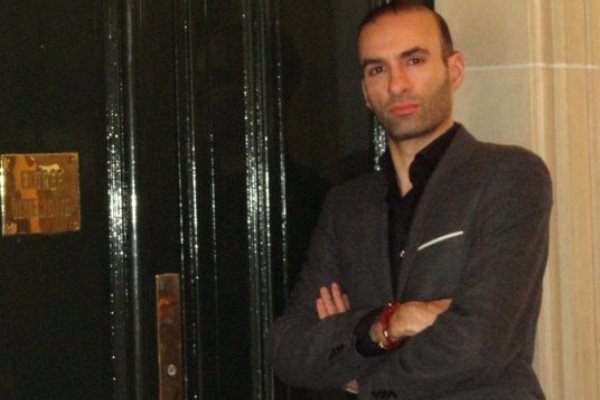Iran has to pursue long term strategy towards U.S.: Arshin Adib-Moghaddam

Professor Arshin Adib-Moghaddam, Chair of the Centre for Iranian Studies at the London Middle East Institute believes “Trump is operating on the basis of a hysterical form of politics, that is irrational and delirious.”
Professor in Global Thought and Comparative Philosophies and Chair of the Centre for Iranian Studies at the London Middle East Institute, also adds that “The Trump years will be over, sooner rather than later, and Iran has to pursue a long term strategy towards the United States that is not merely reactive in the moment, but looks beyond current predicaments.”
Here is the full text of the interview
Q: Despite many internal and external oppositions, Trump decertified the JCPOA. What were the reasons behind his very decision? What signal did he want to deliver both internally and externally by doing so? Reimposing Iran's sanctions by Congress is in fact tantamount to the violation of JCPOA. Then, Trump makes Congress responsible for the scrap of the very deal. Do you believe Congress Reimpose Iran's nuclear deal waiver before?
A: This is what I call “psycho-nationalism” in my new book for the Global Middle East book series with Cambridge. Trump is operating on the basis of a hysterical form of politics, that is irrational and delirious. He is literally in a state of delirium which must be partially due to his sheltered upbringing and lack of intelligence. Hence, he doesn’t pursue strategies; his decisions are tactical, short term without long term acumen. Of course, characters like him who are authoritarian in everything they do, are the masters of provocation. But it is noteworthy, as you rightly imply in your question, that no one listens to the Trump administration. In an unprecedented move, even the Conservative government in Britain endorsed the viability and effectiveness of the JCPOA. The UK used to follow the US in most foreign policy projects in West Asia and North Africa, but times have changed, not least because of the obvious weakness of US diplomacy and the diminished standing of the country which is a direct consequence of the incompetency displayed by President Trump and his team. It is a pity, because the United States has great potentials to be a force for good in world politics, but at this moment in history, under the current leadership it is the biggest threat to world peace.
I should add the obvious. There is no hostility between the people of Iran and the United States. Indeed, there are millions of reasons why they should be united in the form of Iranian-Americans who love their motherland and who are drawn to Iranian culture. In addition, we have seen that there is no god-given reason why both countries have to be eternal enemies as the Obama interlude showed. If Joseph Biden would have been President, our interview would explore questions of peace, maybe even diplomatic relations.
Q: In Europe, a single voice concerning the violation of JCPOA cannot be heard. French President, Macron, had underlined before that it would be necessary to include some articles pertinent to human rights and missile issues within JCPOA. This is somehow similar to Trump' word. Do you think Europe will follow suit?
A: I have maintained for years that the EU will steadfastly support the JCPOA. THE EU as well is post-American in its world view. The US Congress is unreliable, but even if there is a concerted effort to question the JCPOA, there will be no concession by the EU. This is why I have emphasized in my previous interviews that the EU is Iran’s most reliable partner. Of course, it is even more essential than ever right now that Iran keeps its side of the bargain and keeps the communication going with the EU as much as possible. President Macron has announced he wants to visit Iran next year – This is a good step towards peace. Iran should be open to deepen the dialogue with Europe along all themes including democracy and human rights. The biggest threat to Iran’s national security – after all – is not the United States, but internal instability which can only breed when there is unnecessary suppression of the people’s demand.
Q: Iran's FM, Zarif, has underscored so far that JCPOA is deemed a deal when all parties are committed to it. What is Iran's reaction to the US withdrawal from the deal?
A: It is absolutely necessary to keep the communication going, even if it means to use trusted intermediaries such as Oman. The two countries are too important to the stability of the international system to remain in an antagonistic mode for too long. As indicated, it is imperative that Iran gets even closer to the EU, not least to keep the communication with Washington going, and to minimize misperceptions. The Trump years will be over, sooner rather than later, and Iran has to pursue a long term strategy towards the United States that is not merely reactive in the moment, but looks beyond current predicaments. Foreign Minister Zarif understands that. The second, strategy would be to follow a cultural diplomacy. I have set this out as well in previous interviews. There is no reason why Iran should not facilitate people to people contacts in education, the arts, cinema etc. The path towards peace, after all, is always paved by civil societies, and less so by our politicians.
